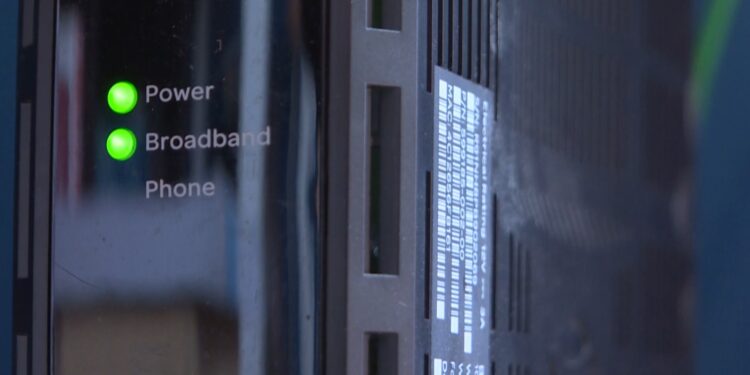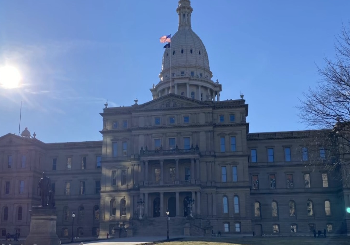LANSING, Mich. (WZMQ) – The Michigan Office of Highspeed Internet (Mi-Hi) is launching its state-wide Digital Equity Plan with the help of federal funding.
The National Telecommunication and Information Administration (NTIA) is investing over $20 million to bring all Michiganders online. This grant is the second chunk of federal funds recieved by the state to develop and put a digital equity plan into action.
The MTIA’s Digital Equity Director, Angela Thi Bennett, said it’s all part of a $48 billion plan from the Biden-Harris administration to make sure every American has what they need to access the internet.
The first part of the program was $60 million in state planning grants that were given to assist with gathering the information needed to create state digital equity plans. Michigan’s was created with the help of 800 residents durring last year’s 41-stop ‘MI Connected Future Tour’
“They [Mi-Hi] were very thoughtful and intentional in ensuring that they developed a holistic strategy,” Bennett said. “Now they will have the funding to actually transform those dreams into realities for our communities.”
The National Digital Equity Act has rolled out $2.75 billion to fund the plans that states have spent the past year creating.
In Michigan, 500,000 households go without reliable internet connection, and 30% don’t have the needed devices to access it.
Allie Herkenroder is the Digital Equity Director for Mi-Hi, she explained that the plan is highly individualized to target as many of those households as possible. Different portions of the plan aim to set up broadband connections and ensure affordable providers, others target getting the needed devices and instruction to community members.
“Communities know communities best. The solutions that will work for Marquette will not necessarily work for Salt Ste. Marie. We want to be able to help support communities with the resources to be able to fill those gaps.” Herkenroder said. “The focus is on making sure that community has the resources that they need to be able to get folks online the ways that they need to be online.”
The Digital Equity Plan includes a number of host sites around the state. Three are planned to be located in the Upper Peninsula with designated regional directors.
Herkenroder and Bennett both encouraged residents to stay involved as the plans progress. Through the state’s Broadband Equity Acess and Deployment Challenge, Mi-Hi is still collecting data about internet access in different regions. Herkenroder said that data will determine how funds are deployed in 2025 and is a crucial part of how regional plans will be drafted. The state is asking that U.P. residents participate here: Michigan.gov/leo/bureaus-agencies/mihi/funding-opportunities/bead/bead-challenge-process
“We want to be able to focus with community organizations who are already doing such tremendous digital equity work throughout the state, especially in the U.P.,” Herkenroder said. “[We want to] Make sure that they have the support and the guidance to have a statewide solution that fits in line with this Digital Equity Plan while simultaneously meeting the needs of their community.”
Herkenroder said they expect to secure the funds by the end of the year to start rolling out the first portions of the plan.










